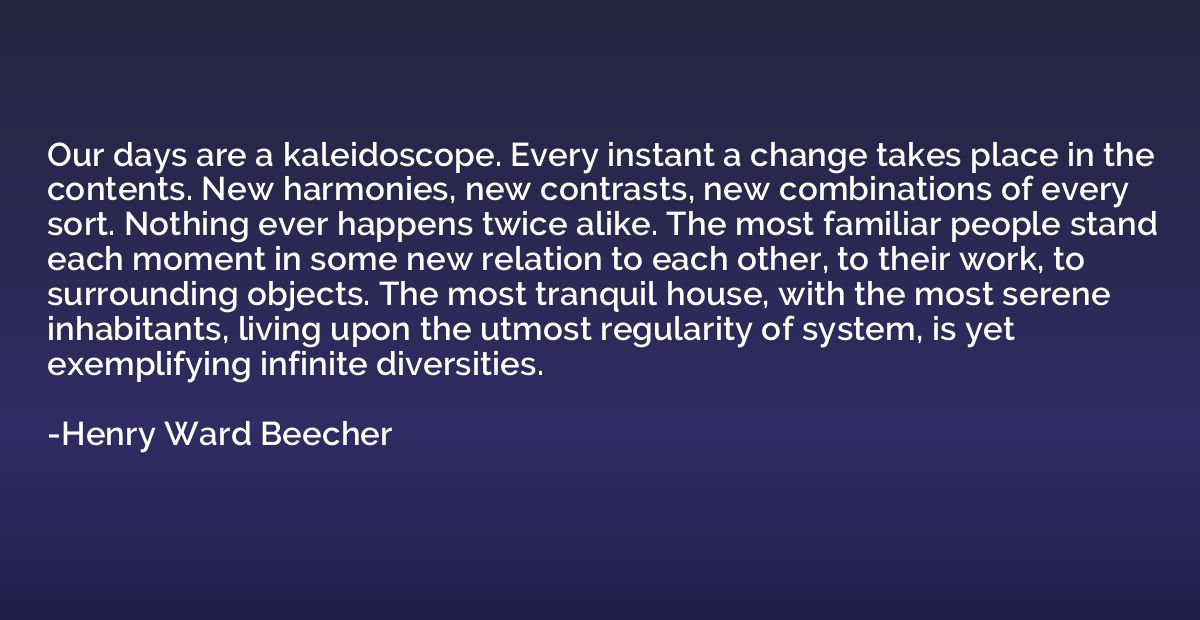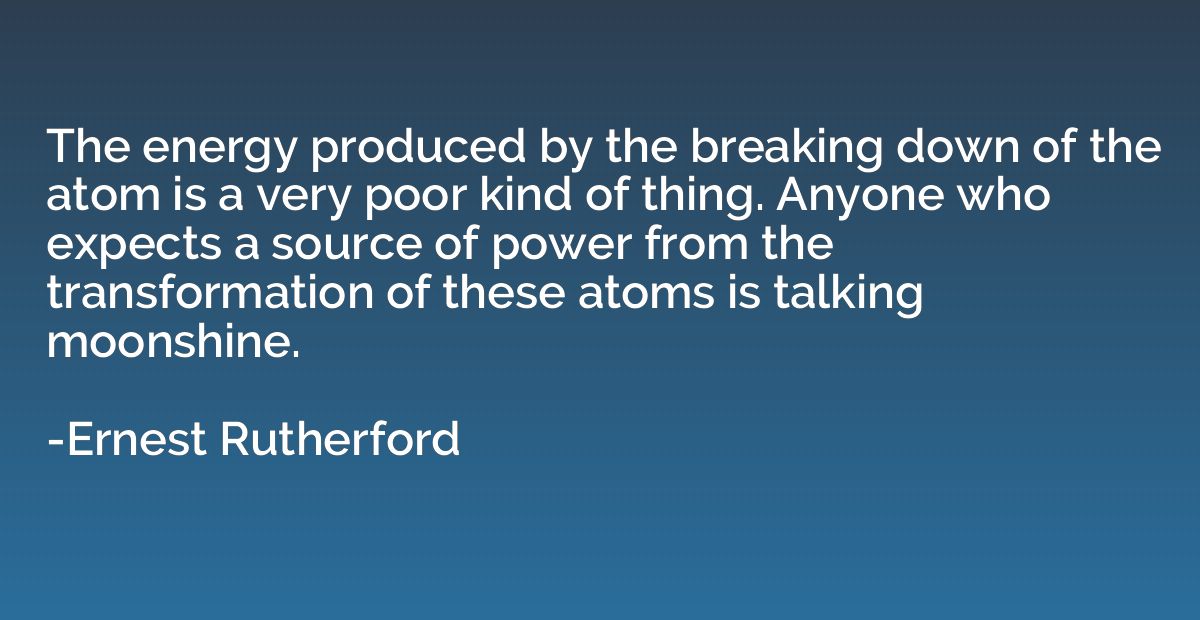Quote by Henry Ward Beecher
Our days are a kaleidoscope. Every instant a change takes place in the contents. New harmonies, new contrasts, new combinations of every sort. Nothing ever happens twice alike. The most familiar people stand each moment in some new relation to each other, to their work, to surrounding objects. The most tranquil house, with the most serene inhabitants, living upon the utmost regularity of system, is yet exemplifying infinite diversities.

Summary
This quote emphasizes the dynamic nature of life and human experiences. It compares our days to a kaleidoscope, suggesting that every moment brings a new and unique combination of events and relationships. Even in the most familiar settings or routines, there is an endless array of possibilities and change. It suggests that no two moments are the same and that everything around us, including people and objects, constantly undergoes new harmonies and contrasts. Ultimately, the quote expresses the idea that life is filled with infinite diversities and surprises.














